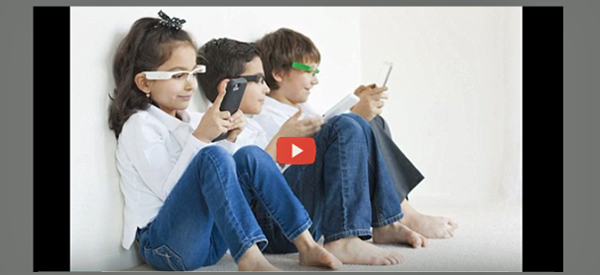Kids hunched over phones and tablets aren’t just a common sight; it sometimes seems like it’s the only view you get of kids unless they’re running up and down a playing field. Bad neck posture can result in neck and back pain. Over time it can lead to painful and unhealthy spinal curvature and disc herniation. The experience is bad enough if you’re an adult (waving my hand here – I have to do exercises daily to relieve the pain). For kids still in their growth stages, however, the concern about later problems is even greater than with adults. We’ve written before about “forward head” or “text neck” and Namu’s Alex that alerts you with a vibration and a smartphone alert if your head goes forward too much. It seems doubtful kids would accept the Namu solution because all it does is send an alert.
Medical Wearable Solutions has a solution that kids might accept, and we’ll emphasize might, because it combines both a stick and a carrot, each in the form of playing time. The EyeForcer , which is currently in a Kickstarter campaign, adds and subtracts device playing time based on posture. The EyeForcer device looks like an eyeglass frame, without lenses. For kids concerned about looking too dorky, the frame comes in several color combinations – chances are they’d only use it at home anyway, but at least during that time they’d be prompted for better posture.
.
The EyeForcer pairs with an Android app running on a smartphone or tablet. There is no iOS version at this time. When the sensors on either side of the frame detect that the wearer’s head is bent forward, the user gets a notice. Uncorrected bad posture leads to reduced playing time, while maintaining good posture adds minutes. Parents can set how many posture warnings are sent before the device shuts down and the EyeForcer can also detect if the user has taken it off — in that case, it will send a stream of warnings and turn off the device.
So assuming the EyeForcer actually works as promised — and why not? — the key to its actual success will be parents. Except for the likely rare child or teenager who is concerned about posture, parents are going to have to sell the idea and enforce its use.


